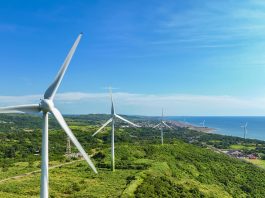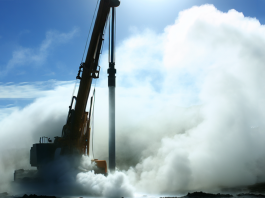Technovative Solutions’ nGEL project aims to overhaul traditional geothermal plants to help accelerate decarbonisation.
The shift towards renewable energy is critical for reducing global greenhouse gas emissions and combating climate change. According to the International Renewable Energy Agency (IRENA), 90% of the world’s electricity should come from renewable sources by 2050. Today, fossil fuels still account for over 80% of global energy production and are responsible for 75% of greenhouse gas emissions. In contrast, only 29% of electricity comes from renewable sources, but this number is set to rise, driven by policies from the European Commission.
The push for renewables focuses not only on solar and wind but also on geothermal energy, which offers a cleaner and more reliable source of power. Geothermal energy has the lowest carbon footprint compared to other renewable sources like biogas and fossil fuels, emitting just 20-30 kg of CO₂ per MWh. However, geothermal energy remains under-utilised, largely due to high costs. Technovative Solutions Ltd. (TVS) is at the forefront of overcoming these challenges with its innovative technologies and projects, including the nGEL project.
The nGEL Project: Transforming geothermal power plants
The nGEL project aims to revolutionise geothermal energy by converting traditional geothermal organic Rankine cycle (ORC) plants into flexible tri-generation systems. These upgraded plants will be capable of producing electricity, heating, and cooling, making them essential in balancing power and thermal grids. This will be achieved through the integration (with the geothermal ORC) of absorption chiller, thermal energy storage (TES), cold thermal energy storage (CTES), heat exchangers (HXs), smart control and energy management system (EMS) with artificial intelligence (AI) functionalities.

The nGEL project is a crucial step in making geothermal energy a key player in the global transition towards renewable energy. In the nGEL Project, Technovative Solutions Ltd. will be using its proprietary technology to increase geothermal power production during higher ambient temperatures to increase the reliability of geothermal ORC. TVS will also develop life cycle assessment (LCA) models, and thermo-economic models to evaluate the environmental and economic performance of the geothermal ORC plant and will establish a digital twin of the geothermal ORC plant operations by implementing AI models.
Co-ordinated by Fraunhofer Gesellschaft (IEG), the project includes partners such as Vlaamse Instelling Voor Technologisch Onderzoek N.V. (VITO), Zorlu Enerji Elektrik Üretim, Geolorn Ireland Ltd., REPG Energy, Naldeo Technologies Et Industries, and Technovative Solutions Ltd. (TVS). The total budget allocated for the nGEL Project is nearly €6m.
nGEL is a four-year project, launched in June 2024 and funded by the Horizon Europe Framework Programme (HORIZON) under Research and Innovation Actions, grant agreement No. 101148170, in response to the call: ‘Horizon-CL5-2023-D3-02 (Sustainable, Secure, and Competitive Energy Supply)’.
The future of geothermal energy
Geothermal energy offers a unique combination of reliability and low emissions, making it an ideal complement to intermittent renewable sources like wind and solar. As the world moves towards net-zero emissions, geothermal energy will play an increasingly important role in stabilising power grids and reducing dependence on fossil fuels.
Please note, this article will also appear in the 20th edition of our quarterly publication.









